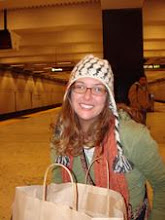Along with awareness comes identification and early intervention.


In remote kindergarten schools, nurses target the country's most vulnerable children. At a recent training, I helped to empower the kindergarten teachers and spoke to them about the importance of early childhood education and identification.

In preparation for National Disability Day March 29th, we gave an awareness training for teachers. Desmond is a volunteer at the centre. Before he became blind he was a teacher in mainstream schools. Now he works with communities to promote the rights of persons with disabilities through awareness activities. He also provides home-based education for students with visual impairments in remote villages. Here, Desmond demonstrates Braille with teachers.

Desmond had a good laugh blindfolding teachers and sending them around the centre. In fact, by the end one teacher was begging to take the blindfold off and he said with his usual smile "I can't remove my blindfold, so neither can you."

Teachers experienced the daily struggles of persons with physical disabilities. While seated in a wheelchair they were asked to get a book off a shelf or put on a pair of pants.

When we reach out to teachers who express concerns about not having the right teaching aids or materials needed to help children with disabilities, we respond..."It's not about resources; It's about attitudes!" This is a lesson for us all around the world. I challenge those of you reading to reflect upon your personal attitudes and beliefs not only towards those with disabilities, but also those who are disadvantaged. How do you view the poor, those who have immigrated into your country, those with different religious or sexual views than your own, those who have nothing and live on the streets, the hungry, those who are forced to beg?
Mi wankain olsem you! We are the same! It's how we view one another that is different.







No comments:
Post a Comment